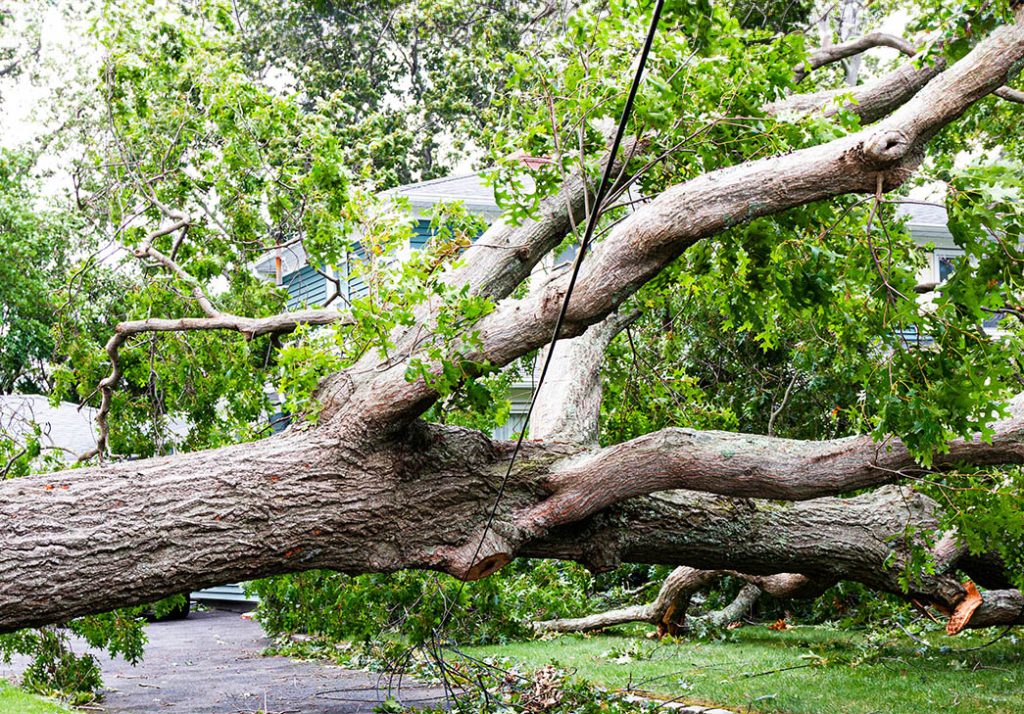As homeowners, we often find ourselves grappling with the uncertainties of natural disasters and their potential impact on our most valuable asset – our homes. In today’s unpredictable climate, understanding the extent of home insurance coverage has become paramount. Whether you reside in a tornado-prone region, a hurricane hotspot, or an earthquake-susceptible zone, it’s crucial to know what your policy covers and what gaps may exist.
In this comprehensive article, we’ll delve into the intricacies of home insurance coverage, exploring which natural disasters are typically included and which ones may require additional protection. By the end, you’ll have a clear understanding of your home’s insurance safeguards, empowering you to make informed decisions and ensure your financial security in the face of unforeseen calamities.
The Scope of Home Insurance Coverage
Home insurance policies are designed to provide a safety net for homeowners, shielding them from a wide range of perils that can threaten their property. While the specifics may vary depending on the policy type and location, a standard homeowners insurance plan generally covers the following:
Dwelling and Personal Property
This coverage safeguards the physical structure of your home, including the roof, walls, and foundation, as well as your personal belongings within the residence. In the event of damage or destruction, your insurance will step in to cover the costs of repair or replacement.
Other Structures
Home insurance also extends to other structures on your property, such as detached garages, sheds, or gazebos. These ancillary buildings are typically covered under a separate coverage limit within your policy.
Loss of Use
If your home becomes uninhabitable due to a covered disaster, your insurance will provide financial assistance to cover the costs of temporary housing and living expenses while your property is being restored.
Liability Protection
Home insurance policies include liability coverage, which protects you in the event that someone is injured on your property or if you are held responsible for damage to their belongings.
Disasters Typically Covered by Home Insurance
Now that we’ve established the general scope of home insurance coverage, let’s delve into the specific natural disasters that are typically included in standard policies:
Wind Damage
Homeowners insurance policies generally provide coverage for damage caused by wind, including tornadoes and hurricanes. This coverage encompasses damage from high winds, hail, flying debris, and fallen trees.
Fire
Your home insurance policy will typically cover damage to your dwelling and personal property caused by fire, regardless of the source, unless the fire was intentionally set by the policyholder. In wildfire-prone areas, however, wildfire may be excluded as a covered peril.
Explosions
Accidental explosions, whether they occur within your home or in the surrounding area, are generally considered a covered peril under homeowners insurance. Your dwelling and personal property coverage should both provide financial protection in the event of an explosion-related incident.
Lightning Strikes
A lightning strike can cause a fire, damage your home's wiring, or create a surge that ruins expensive electronics. Standard homeowners insurance typically covers the cost of repairing or replacing these types of damages to your dwelling and personal belongings.
Extreme Cold
Most standard homeowners insurance policies will cover damage to your dwelling and personal belongings caused by extreme cold, such as burst pipes or the weight of ice, snow, or sleet. Be aware however, that while damage caused by a burst pipe is covered, the cost of repairing the pipe itself may not be included.
Disasters Not Automatically Covered by Home Insurance
While home insurance provides a comprehensive safety net for a wide range of natural disasters, there are a few notable exceptions that are typically excluded from standard policies. These coverages may be available as add-ons to your policy for an additional premium. If you’re in an area more susceptible to flooding or earthquakes, you’ll pay higher premiums, and in certain circumstances may find it hard to obtain coverage at all.
Floods
Water damage as a result of a fresh body of water overflowing its banks, a sudden heavy rainfall or a rise in the water table can cause devastating and costly damage to your home. This type of coverage is generally an endorsement to your homeowners policy. Be aware that if you live in a high risk area for flooding, you may not be able to get flood coverage for your property.
Earthquakes
Damage resulting directly from an earthquake is not covered but can be added for those who are eligible. Earthquake insurance can have a much higher deductible, but damage from a quake can be quite extensive and expensive to recover from.
Nuclear events
In the event of a nuclear accident or explosion, your homeowners insurance will not provide any coverage. Nuclear power plants, however, are required to carry liability insurance to protect the public in case of such an incident
Wear and tear
Home insurance policies are intended to protect against losses from sudden catastrophic events, such as fire or storm damage. As the homeowner, you are responsible for regularly maintaining your home.
Vermin Infestation
Whether its rodents or insects, your homeowners policy will not cover damage by vermin. Since this type of damage generally gets worse the longer the problem goes unchecked, vermin infestation falls under the purview of general maintenance and is the responsibility of the homeowner.
Preparing for the Unexpected
Navigating the complexities of home insurance coverage can be daunting, but being proactive and understanding your policy’s limitations can make all the difference when disaster strikes. Here are some essential steps to take:
- Review Your Policy: Carefully review your homeowners insurance policy to understand the specific perils it covers and any exclusions or limitations. Don’t hesitate to consult with your insurance broker if you have any questions.
- Consider Supplemental Coverage: Water damage from extreme weather events has been one of the leading causes of insurance claims in recent years. McLean & Dickey urges all home insurance policy holders to consider purchasing additional overland water and sewer backup coverage.
- Maintain Your Property: Proper maintenance of your home is crucial, as damage due to lack of upkeep or infestation is generally not covered by home insurance.
- Create an Emergency Plan: Develop a comprehensive emergency plan that includes an emergency kit, evacuation procedures, and a plan for securing your property in the event of a natural disaster.
- Document and File Claims Promptly: If your home sustains damage, document the extent of the damage and file a claim with your insurance provider as soon as possible to ensure a smoother claims process.
By understanding the nuances of home insurance coverage and taking proactive steps to protect your property, you can have peace of mind knowing that your financial security is safeguarded, even in the face of unexpected natural calamities.
Conclusion
Home insurance has become an essential safeguard for homeowners. By familiarizing yourself with the coverage provided by standard policies and the specific disasters they include, you can make informed decisions to ensure your home and personal belongings are adequately protected.
While home insurance provides a robust safety net, it’s crucial to stay vigilant, review your policy regularly, and consider supplemental coverage for high-risk areas. By taking these proactive steps, you can rest assured that your most valuable asset is shielded from the unexpected, allowing you to focus on the joys of homeownership without the constant worry of financial ruin.
Protect your home from the unexpected. Contact us today to discuss your home insurance needs and ensure you’re covered against natural disasters. Get personalized advice and a quote now!
Frequently Asked Questions
What should I do if my home is damaged by a natural disaster?
If your home sustains damage from a natural disaster, the first step is to document the extent of the damage and file a claim with your insurance provider as soon as possible. Be prepared to provide detailed information and photographs to support your claim. Additionally, make any necessary temporary repairs to prevent further damage, but avoid permanent repairs until the insurance adjuster has inspected the property.
How can I ensure I have adequate coverage for natural disasters?
To ensure you have adequate coverage for natural disasters, review your homeowners insurance policy thoroughly, paying close attention to the specific perils that are covered and any exclusions or limitations. Consult with your insurance broker to understand your policy’s coverage and discuss the need for any supplemental policies, such as flood insurance, based on your home’s location and risk factors.




